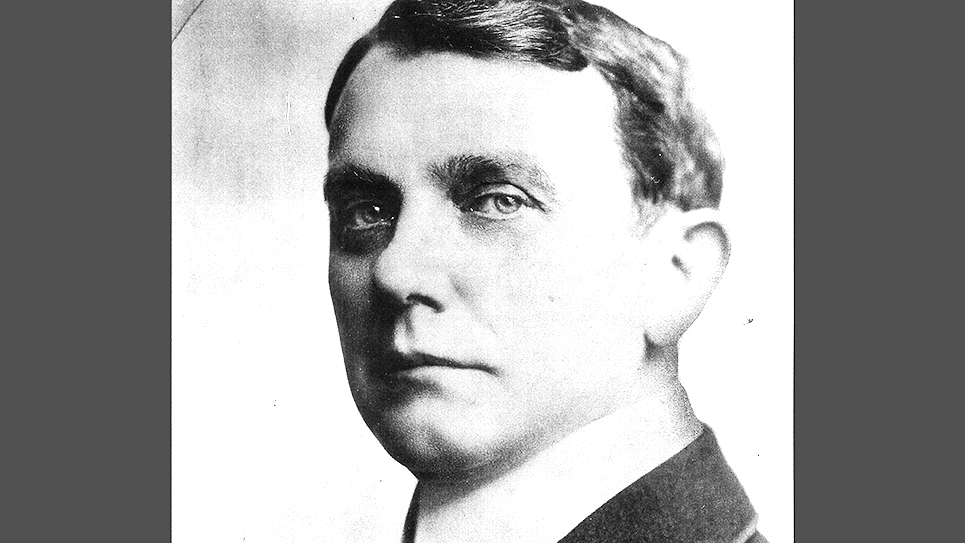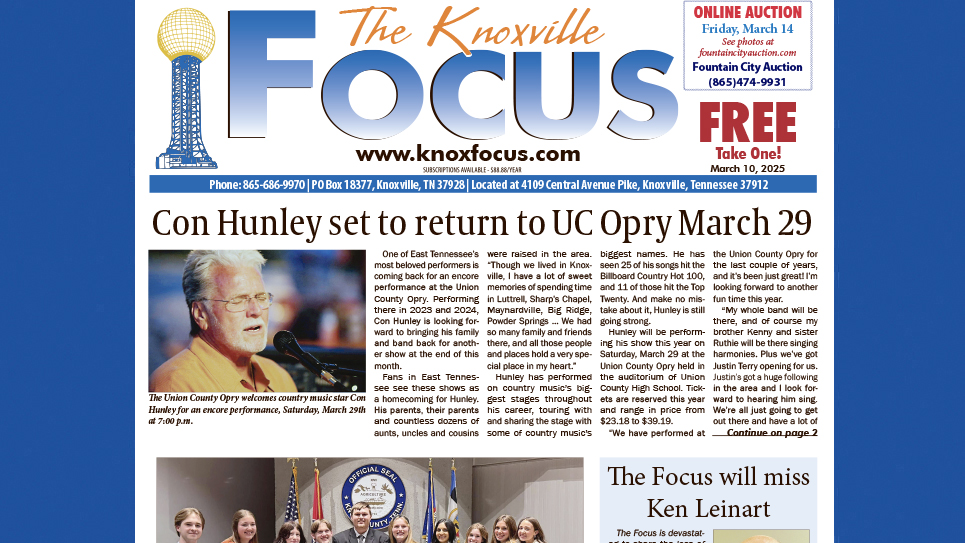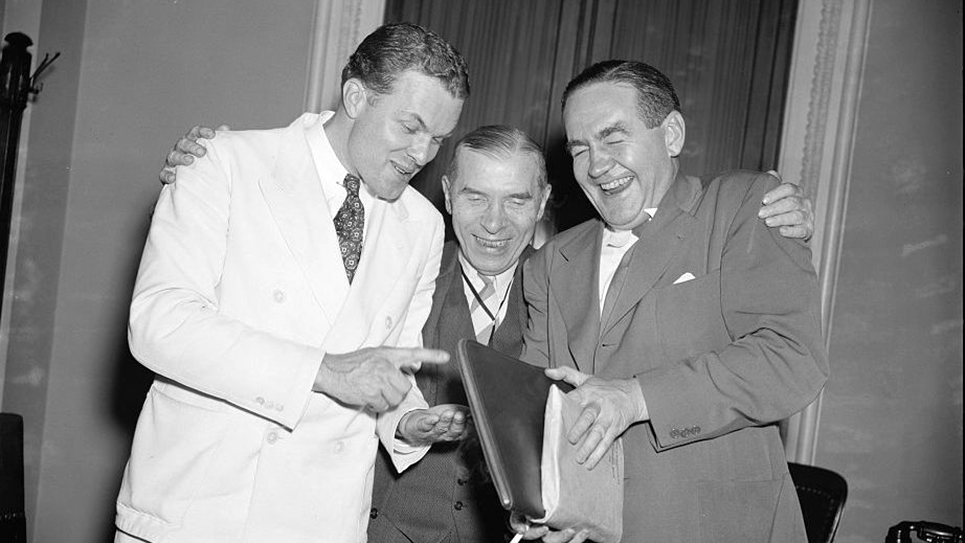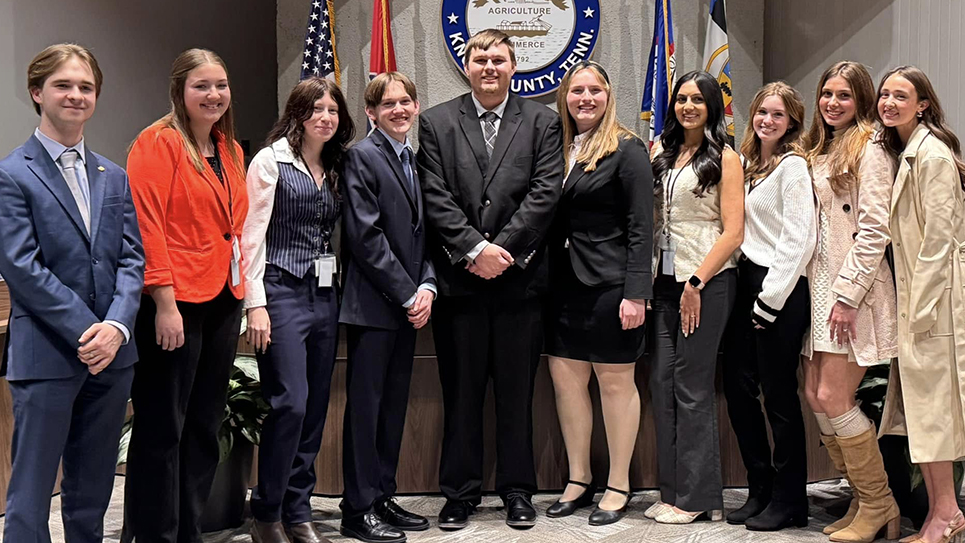K.D. McKellar Goes To Congress, I
Tennessee has been fortunate to have sent some to Congress who have wielded real influence in the Nation’s Capitol. Tennessee has also had a few men who served for decades in Washington, D.C. Carroll Reece and Jimmy Quillen, both of whom served upper East Tennessee in Congress, served together for a remarkable 68 years, each serving for 34 years. Albert Gore Sr. served in the House of Representatives and the U.S. Senate for 32 years. John “Jimmy” Duncan served in the House for 30 years. Yet Tennessee’s longest tenure in Congress belongs to Kenneth Douglas McKellar, who served 42 years as a member of the House and the United States Senate. McKellar served 36 years in the U.S. Senate, longer than any other Tennessean. K. D. McKellar was also the first person ever to be popularly elected by the people of Tennessee.
When Kenneth D. McKellar was born, a Tennessean sat in the White House. Born on January 29, 1869, President Andrew Johnson occupied the White House in anticipation of vacating it for General Ulysses S. Grant. Senator McKellar left office on January 3, 1953, when General Dwight D. Eisenhower was soon to take the oath of office as president of the United States.
The reason for McKellar’s longevity in Congress was not the Crump machine as some assert, but rather his own hard work and ability. McKellar had been born in Alabama and had worked his entire life. McKellar fared well at the University of Alabama where he earned a bachelor’s degree, as well as a law degree. As a young man, he traveled from Alabama to Memphis, where his brother Robert was a railroad official. The young attorney intended to get a railroad pass from his brother and head to California where he expected to settle. While visiting family members in Memphis, K. D. McKellar liked the city, enjoyed the people and decided to stay. McKellar practiced law and was earning top dollar for the time and became a prominent attorney. McKellar also participated in Democratic politics. The future senator was the lawyer for Congressman-elect Edward Carmack, who had defeated incumbent Josiah Patterson narrowly. The redheaded Carmack’s election was challenged by Congressman Patterson and a Republican House was expected to seat the more conservative incumbent over the firebrand. McKellar helped Carmack to be seated by the GOP majority.
Active in Democratic Party politics and those of Memphis, K. D. McKellar had been endorsed by significant elements for the gubernatorial nomination in 1910, but he demurred. He had also been nominated in 1911 when the Tennessee General Assembly was electing a United States senator. According to family legend, McKellar’s entry into elective politics was almost accidental.
Shelby County was represented in Congress by 74-year-old George Washington Gordon, a former Confederate general who had been superintendent of schools in Memphis. Despite his age, Gordon had only first been elected to Congress in 1906 and the former general was seriously ailing when he returned from Tate Springs, where he had hoped to recuperate. Evidently, the general’s condition continued to deteriorate at the resort and his physician advised him to return to Memphis. The Commercial Appeal duly reported Congressman and Mrs. Gordon had arrived at the home of their daughter, Mrs. H. B. Martin. The congressman was “seriously ill” according to the newspaper.
Gordon’s doctor accompanied the congressman back to Memphis while the family promptly summoned the general’s usual physician, along with a nurse. George Washington Gordon had been in failing health for some time, and the congressman had been absent for much of the last session of the House. The following day, August 9, 1911, the Tennessean reported the congressman was dying. Tennessee newspapers reported Gordon’s steady decline.
George Washington Gordon died that same day. As always, when an incumbent officeholder dies, the speculation about a successor begins before the body is cold. Yet there was immediate speculation K. D. McKellar would become a candidate. The Nashville Banner published a story stating McKellar was “practically assured” of seeking the Democratic nomination to succeed General Gordon. At the time, Kenneth McKellar was the chairman of the Tenth Congressional Democratic Committee. McKellar was strongly in favor of allowing the people to nominate their own choice in a primary as opposed to a convention selecting the nominee.
Family lore had it that K. D. McKellar was vacationing when Gordon died. When the 74-year-old Gordon went to meet his Maker, the most apparent prospective candidate was Thomas C. Looney, who had run against Congressman Gordon in the 1910 Democratic primary and polled a good vote. Looney was the son of famed Confederate Colonel Robert F. Looney. One of McKellar’s brothers wired him while he was on vacation to inform him of Gordon’s death and the groundswell of support for him if he would run for Congress. Supposedly, McKellar wired back a terse telegram from the golf course: “Not interested.”
When supporters of a prospective McKellar candidacy sadly reported the attorney had no interest in running in the special election, the aptly named Looney allegedly and foolishly boasted McKellar was afraid to run. Possessing a quick and fiery temper, McKellar immediately wired his brother to make public his announcement he was running for the House of Representatives, instructing his brother to pay the filing fee. K. D. McKellar cut short his vacation and hurried home to begin his campaign to represent Shelby, Fayette, Hardeman and Tipton counties in Congress. At least that was the story recounted by the senator and family members ever afterward. History seems to reveal McKellar was quite interested in succeeding General Gordon in the House.
McKellar was actually the first entry into the Democratic primary to succeed the late George Washington Gordon. K. D. McKellar made his announcement official on August 14, 1911, in the form of a speech to voters inside Tennessee’s Tenth Congressional District. McKellar said he would resign his post as chair of the committee overseeing the selection of a candidate and would seek a primary election to determine the nominee.
While K. D. McKellar made his own announcement official, supporters of former Governor Malcolm Rice Patterson were busy promoting his own candidacy. Patterson had held the seat before G. W. Gordon before winning election as governor, but a series of scandals had kept him from running for a third two-year term in 1910. The former governor remained a highly controversial figure even inside the Democratic Party. The McKellar-Patterson rivalry would continue for well over a decade.
Tom Looney made his own declaration of candidacy shortly after that of McKellar. Looney’s announcement followed a statement issued by Malcolm Patterson, who said while he appreciated the urging of his friends, he would not run for Congress. Almost as soon as Patterson’s statement hit the newspapers, T. C. Looney made his candidacy official. Looney had never been likely to run against Patterson as the two were friends and Looney had managed Patterson’s gubernatorial campaigns. At least initially, Looney appeared to be a formidable candidate. He had carried the City of Memphis in the 1910 primary against Congressman Gordon and had received a large vote in the three counties outside of Shelby. Tom Looney said he, too, favored a primary election to select the Democratic nominee for the U. S. House of Representatives.
The Tenth Congressional District Democratic Committee met on August 22, 1911, at the Shelby County Courthouse and true to his word, K. D. McKellar resigned as chairman. The committee called for a primary election to determine the Democratic nominee in the special election to succeed George Washington Gordon; if no candidate received a majority of the votes cast, there would be a run-off election to determine the winner. The call for a primary election was hotly contested by Hugh Simonton of Tipton County. Simonton was described by the Commercial Appeal as “of the old line Democrats” who believed primaries had weakened the Democratic Party and increased strife amongst its membership.
The Columbia Herald speculated on the race to succeed General Gordon and acknowledged Looney’s previous campaign to win a seat in the House for himself. The Herald noted Looney’s cordial ties to Malcolm Patterson and felt sure the former governor would back his old friend. Kenneth McKellar, the Herald acknowledged, was “one of the leading lawyers” in Memphis and had been a presidential elector for the Parker-Davis ticket in 1904. “McKellar, until the Taylor-Hooper race last year, had always been affiliated with the better element of his party,” the Herald reported. The newspaper also thought McKellar would be a strong favorite of those voters who favored temperance, especially as he had been the campaign manager for E. W. Carmack’s first race for Congress against Malcolm Patterson’s father, Josiah.
By the time of the filing deadline, only K. D. McKellar, Thomas C. Looney, and C. C. Ogilvie had qualified to run in the special House election. McKellar quickly offered up his issues for the coming Democratic primary. Noting he had been a lifelong Democrat and active in numerous campaigns for other candidates, McKellar endorsed the platform adopted by the Democratic National Convention in 1908, as well as that adopted by the state convention in 1910. K. D. McKellar emphasized his support for reducing the tariff “on all articles which will reduce the cost of living,” especially on “woolen and cotton goods, shoes, meats, flour and all other articles that are consumed by all classes of people.” McKellar pointed to the fact such bills had been passed by the Congress, only to be vetoed by President William Howard Taft. If elected to Congress, McKellar pledged to help pass the bills once again. McKellar stated his support for securing reciprocal trade agreements with other nations when it would be to the advantage of American producers and manufacturers. Kenneth McKellar said he would push for reciprocal trade agreements to benefit Tennessee commodities like “cotton seed products, cotton goods” and all “produce and merchandise produced and manufactured in Tennessee and the other Southern states.”
As a congressional hopeful, McKellar also stressed his longtime commitment to better roads in the Volunteer State. K. D. McKellar said he would work to get some kind of aid from the federal government. The candidate ticked off other concerns to the people of Tennessee’s Tenth Congressional District like flood control and river navigation.
As Kenneth D. McKellar campaigned for a seat in the U. S. House of Representatives, there was no mass media candidates could utilize to reach masses of voters. No radio or television; indeed, many homes were lucky to have electricity. The only way candidates could reach the voters was through personal contact, the mails and newspapers, both weeklies and dailies. It was common at the time for candidates to press the flesh when the Circuit Court was in session, especially when there was a big docket. That event drew both K. D. McKellar and Tom Looney. That same evening, McKellar spoke to a “large and appreciative audience.” A reporter covering the event for the Tennessean watched both Looney and McKellar as they moved through the crowds where they “met old friends and made new ones.” The reporter thought it would be a close contest between the two. A few sparks flew as the two candidates spoke and both emphasized their loyalty to the Democratic Party.
When McKellar noted his own activities as a Democrat, he pointed out he had been the chairman of the 1910 Democratic State Convention and had run the headquarters for Bob Taylor in Shelby County. McKellar drawled that he wondered where Looney had been, as he never saw him at the headquarters during the Taylor campaign. Tom Looney jumped to his feet and cried he had never been asked to participate in the campaign and said it was a well-known fact that the old regulars had been kept “in the rear” of the gubernatorial contest in 1910. Looney snapped he had worked and voted for Taylor along with every other Democratic nominee for office and had been active in his own ward.
The campaign for Congress had begun in earnest. © 2023 Ray Hill







